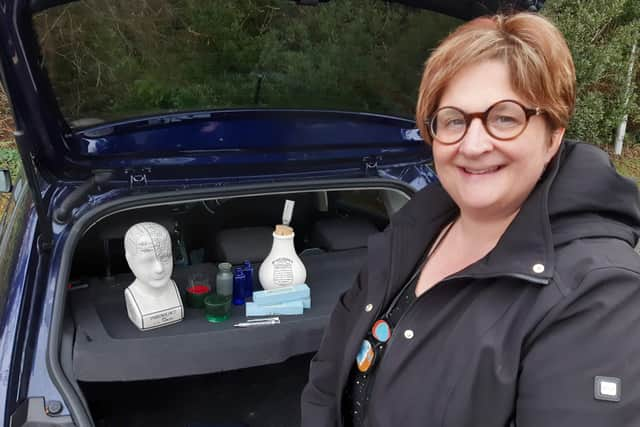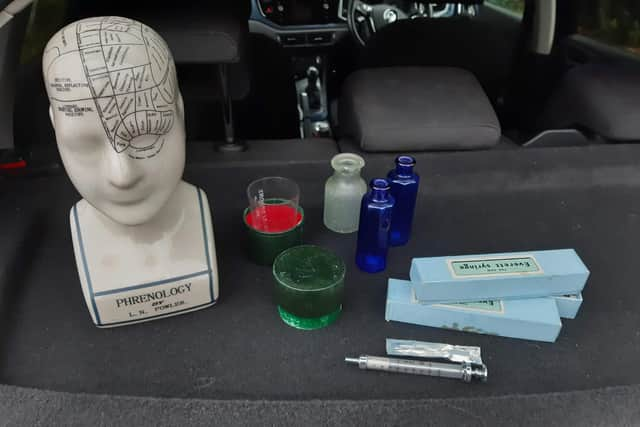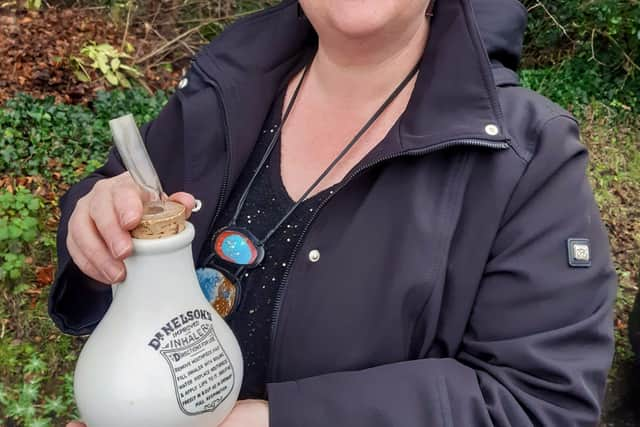WATCH: Former NHS worker’s collection of old items shows progression of medicine
and live on Freeview channel 276
Debbie Duncan, a nursing lecturer at Queen’s University, saved many of the items from surgeries where she worked during her 30 years with the NHS.
She’s decided the time is right to give the equipment to a museum so people can better appreciate the wonders of modern technology in the field of medicine.
Advertisement
Hide AdAdvertisement
Hide AdDebbie said: “Over the years when they were clearing things out, I said I think they should be kept for history. So they gave them to me for that purpose.


“I’ve kept a couple of things, but most of it is going.”
She said: “When you think of Covid and the vaccines people have been getting, I think it’s good to keep a hold of these things, like the syringes, to show how things have changed.
“Would you really like to get your Covid jab with one of those big needles?”
Among the items being donated by Debbie are glass syringes which would have been sterilised and used again, old medicine and perfume bottles, a medicinal glass for measuring out medication, a vintage inhaler/nebuliser and a phrenology head map.


Advertisement
Hide AdAdvertisement
Hide AdPhrenology, which has now been largely discredited, involves the measurement of bumps on the skull to predict mental traits.
Debbie said: “They used to think that everything was to do with the different areas of the brain. This is a map of which areas of the brain are linked to which traits.”
Discussing the nebuliser, branded as Dr Nelson’s Improved Inhaler, Debbie said: “These have been around since the 1700s.
“It’s amazing to compare it to the inhaler that was developed in the 1950s that you could fit in your pocket. Before the little blue inhalers became widely used people would have also used a nebuliser face mask.”


Advertisement
Hide AdAdvertisement
Hide AdDebbie worked as a midwife in Scotland before going into general practice in England.
She moved to Northern Ireland a few years ago, to Newtownards, and now lectures at Queen’s University.
She said: “I run the respiratory programmes for the nurses. That’s why I was so interested in the different types of nebuliser.
“The students are fascinated by the old items – the nebuliser, the syringes.
Advertisement
Hide AdAdvertisement
Hide Ad“Lessons can be learned from these old pieces of equipment.
“It gives us a better understanding of the progression of medicine. We can really appreciate some of today’s innovations.”
Debbie is keen to have the items on display to the public at a prominent Northern Ireland museum.
——— ———
A message from the Editor:
Thank you for reading this story on our website. While I have your attention, I also have an important request to make of you.
Advertisement
Hide AdAdvertisement
Hide AdWith the coronavirus lockdown having a major impact on many of our advertisers — and consequently the revenue we receive — we are more reliant than ever on you taking out a digital subscription.
Subscribe to newsletter.co.uk and enjoy unlimited access to the best Northern Ireland and UK news and information online and on our app. With a digital subscription, you can read more than 5 articles, see fewer ads, enjoy faster load times, and get access to exclusive newsletters and content. Visit https://www.newsletter.co.uk/subscriptions now to sign up.
Our journalism costs money and we rely on advertising, print and digital revenues to help to support them. By supporting us, we are able to support you in providing trusted, fact-checked content for this website.
Ben Lowry
Editor